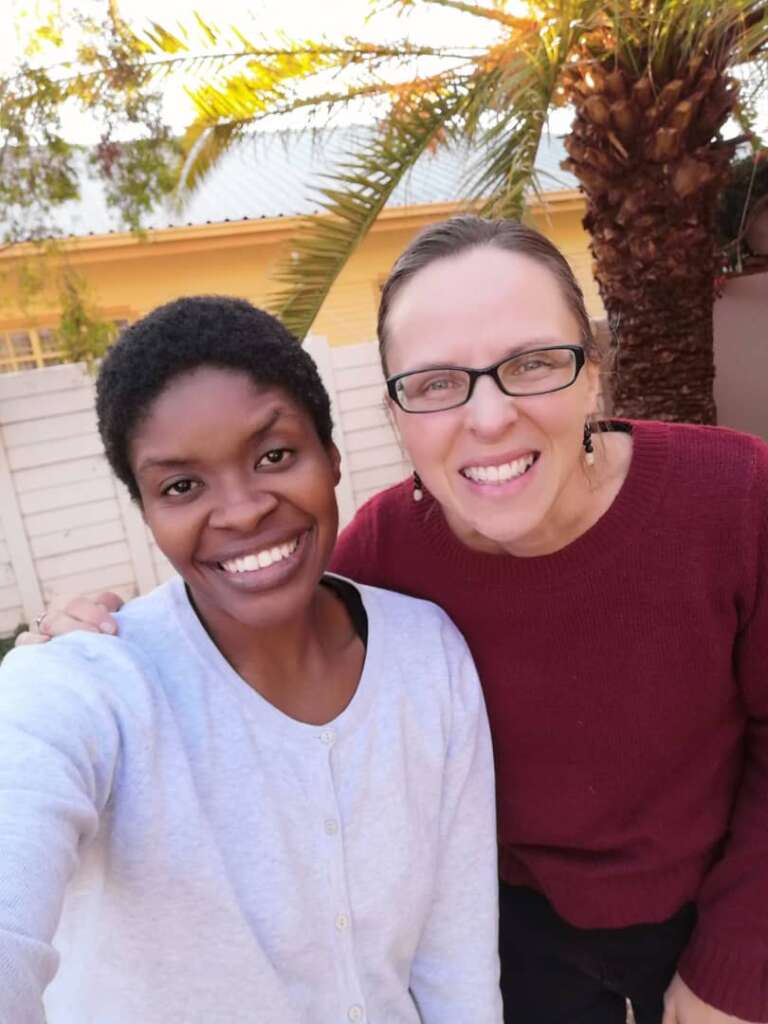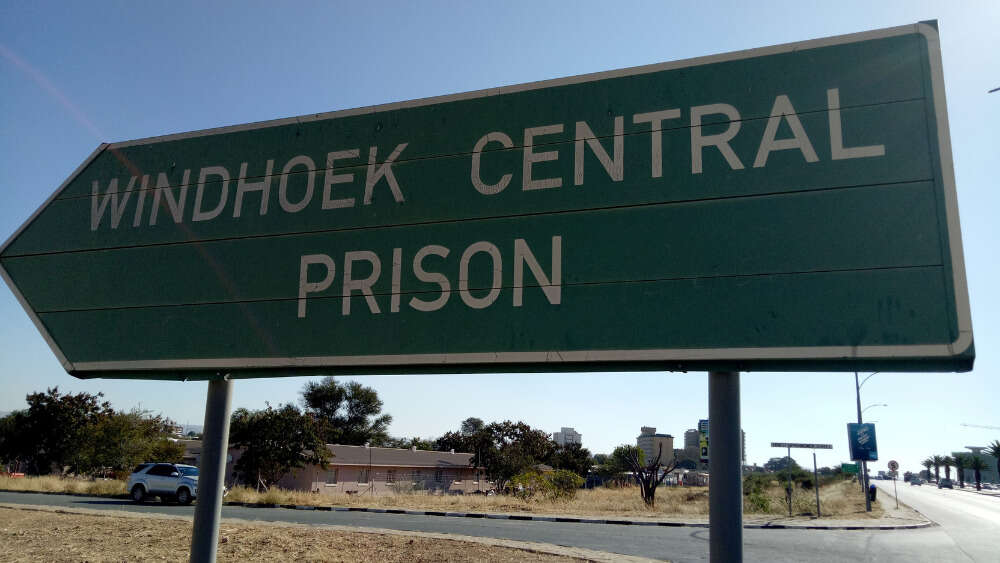Missionary Diary: 'Today I’m going to prison' in Namibia
Endless opportunities …
Olivia Webster and her husband Daniel have been serving with Church Missionary Society (CMS) in Namibia, Africa, for three years. They live in the capital city, Windhoek, with their four sons. Daniel teaches at a theological seminary. Olivia homeschools their sons and works with Side by Side to treat and train people in women’s health physiotherapy.
Today is not going to be an ordinary physiotherapy workday. Today I’m going to prison! And it’s all because of Sarah Kwizi.
I met Sarah several months ago at my first community health worker training session on women’s pelvic health. She runs A Baby’s Cry Foundation, which seeks to reduce abortion and infanticide, issues that are far too prevalent here in Namibia. Sarah asked me to speak at the local prison about women’s health and encourage the women from the Bible. There are five infants under two with their mothers in the prison. Sarah’s organisation is running some first aid training and handing out care packages for the mothers and the other inmates.
But first things first – I teach our four homeschooled boys their Bible and science lessons before I hand over to the babysitter and rush out the door. Boy, has homeschooling been a steep learning curve since the Church Missionary Society sent me and Dan here three years ago. Dan is already at work at Namibia Evangelical Theological Seminary, training church leaders. I only work one day a week, so time is limited and precious.
There but for the grace of God go I, I think to myself.
It’s the first time I have been to this prison. The entry to the relatively new women’s section of the prison is marked by a very simple and already sun-faded sign. There is dry, stony dirt and some long-dead grass around the fences of the prison. I meet Sarah and her team and, leaving cameras in the cars, we file in with crates full of care packages to hand out.
It’s hard to see who is who as everyone is wearing their masks. One thing I’ve had to learn here is to try and remember people’s eyes. Namibian women change their hair every month or so, so with a mask on, you have to remember their eyes if you want any hope of knowing who they are.
We sign in and wait for the prison officials to allow us to the dining room where the meeting will take place. As I wait I wonder what kind of women are in this place. From my brief experiences in prison ministry in Australia, I know that they are probably not that different to me, but with a different history, hardships and choices. There but for the grace of God go I, I think to myself. A local friend who works at the prison has told me that many of these women are in for fraud, theft, infanticide or murder of partners. What kind of desperation drives those crimes?
True to generous Namibian hospitality, we are shown in and seated at a wedding banquet-like table at the front of the room. Sitting on plush office chairs with drinks, snacks and mints to enjoy, we face rows of plastic chairs where the offenders (as they call them) are filing in. It is a typically formal occasion. There is an MC. I am sitting next to the Senior Superintendent and the Assistant Commissioner. Five babies are getting passed around the room so that it is impossible to tell who their mothers are. A glimpse of communal Namibian culture. I marvel that it will not be strange for me to share a Bible story in this country and that helps me feel less nervous. A few of the women have well-used bibles in their laps and as we wait to start, they break into beautifully harmonised gospel songs.

Olivia (right) with Sarah Kwizi
My turn to speak comes. I start by talking about all the weird and wonderful things that can go wrong with women’s bodies and how we don’t like to talk about them because it’s shameful and embarrassing. I tell them that many conditions like incontinence, prolapse, pelvic pain, sexual dysfunction and constipation are actually treatable by women’s health physiotherapy.
I admit they probably are very aware that there are more problems in life than those that affect our bodies. They have probably experienced trouble, unkindness, fear, hunger, uncertainty, longing, loss. I tell them the wonderful and true Bible story of Jesus at the house of Simon, the religious leader from Luke 7 – how Jesus welcomes the sinful woman. Unlike Simon, he accepts her, defends her and even forgives her. And why does he do this? Is it because she was good enough? Followed the rules? Made the right choices? No – because she believed. He accepted her because she had faith.
What a wonderful precious truth for all women who have the insightful inkling that we are actually sinners (how we like to avoid that word in Australian culture!). Many women are nodding and, I think, smiling beneath their masks. What a Lord to follow.
Afterwards, I am able to talk with several of the women and officers. They don’t have a chaplain or access to church at the moment. Some of the believers just meet together and preach and sing themselves. Would I come and visit more often? What a gospel opportunity! How I would love to run a Bible reading or Bible storytelling group here. And a mobile women’s health clinic. Endless opportunities!
Email This Story
Why not send this to a friend?


